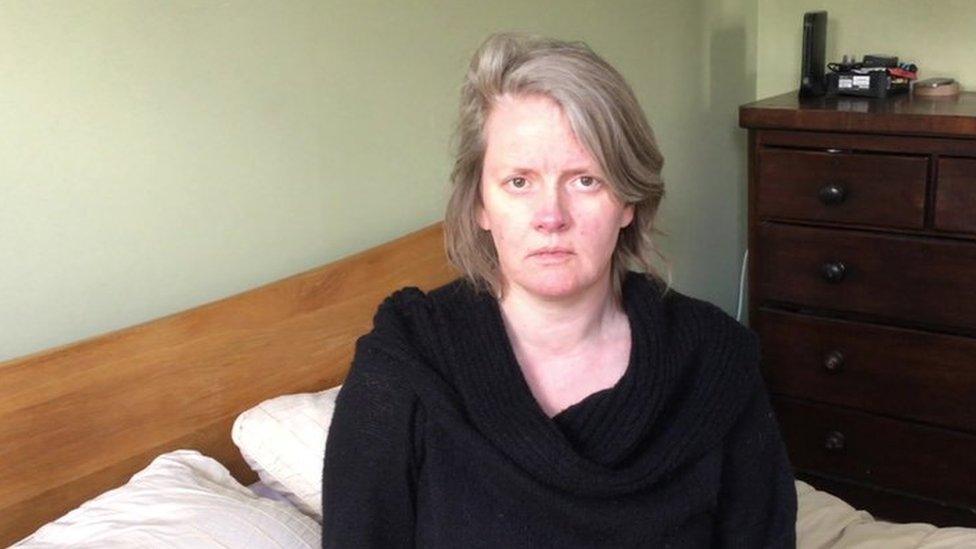Coronavirus: Twelve weeks on I can't kick Covid exhaustion
- Published
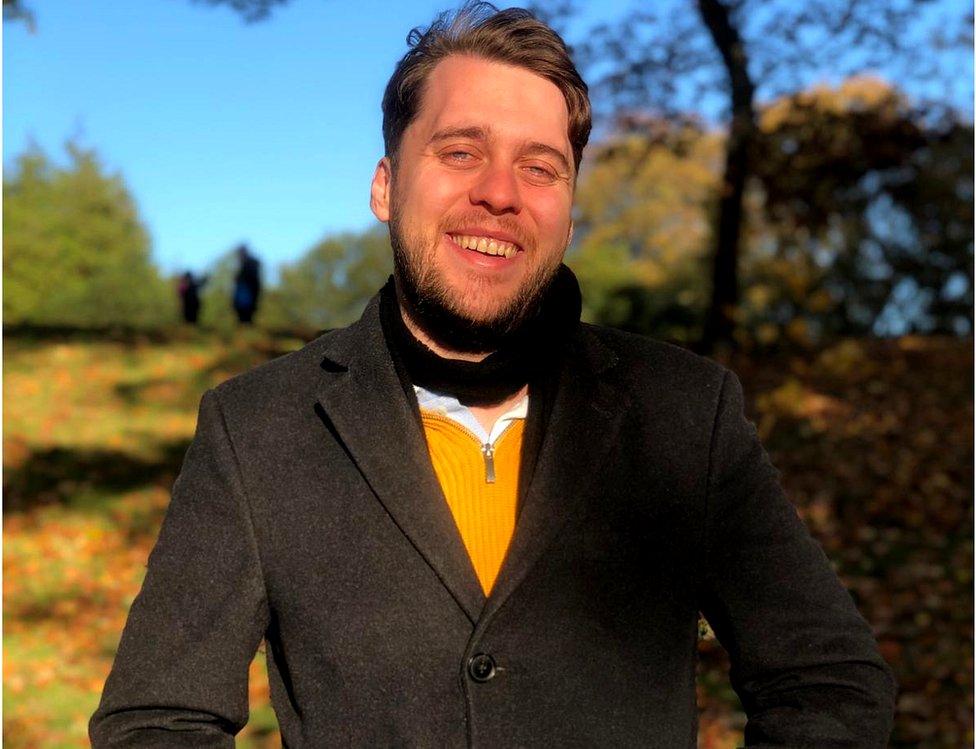
The first symptoms appeared in Callum O'Dwyer on 23 March, the day the UK went into lockdown
Twelve weeks after his first Covid-19 symptoms, 28-year-old Callum O'Dwyer is still not better.
A fit and healthy young man, he had no underlying health conditions before he caught the virus.
But after five weeks fighting off the main symptoms, he could no longer look after himself and had to move in with his parents.
Recovery has taken much longer than he imagined and his ongoing symptoms mean he still can't live on his own or work.
Doctors have told Callum he has post-viral fatigue, a hangover from coronavirus which is affecting many survivors.
Nicola Sturgeon was just hours away from announcing lockdown in Scotland on 23 March when Callum first felt ill.
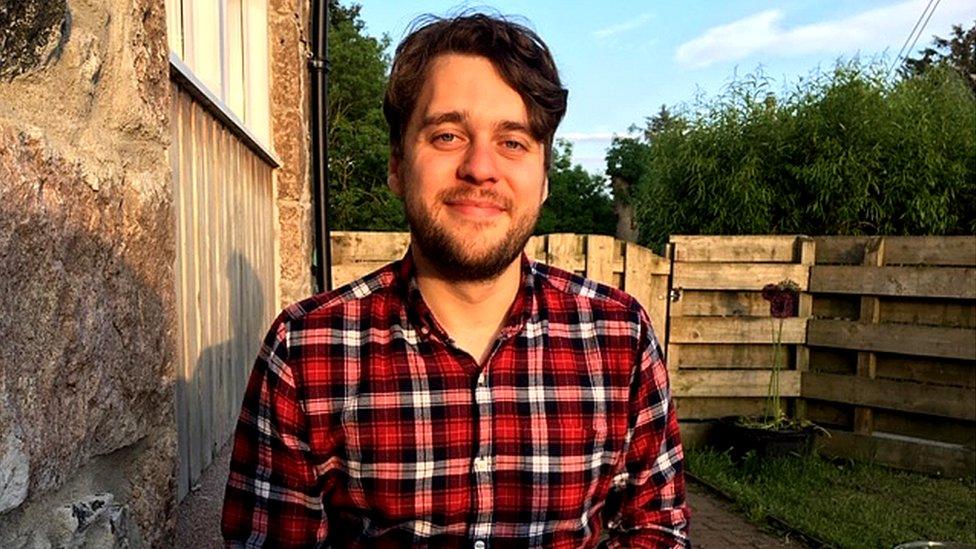
Callum O'Dwyer reached a stage where he felt he could not look after himself, even though the virus was gone
He told BBC Scotland's Drivetime with Fiona Stalker: "I had actually just picked up stuff for my home office to start working from home.
"I felt really fatigued and then nausea and then hour-by-hour it was like an advent calendar of new symptoms - a fever started to develop and then more things kicked off."
He added: "For 10 days I was off my feet with what felt like a really really bad flu. I had never been as sick as that and it was very full-on. Early on, I suspected it was likely to be Covid."
Another thing Callum developed was a persistent shortness of breath and on two occasions he had to call 111 because he was struggling to breathe.
'Rationing energy'
After two weeks most of his symptoms went away and he was left with shortness of breath, fatigue and muscle weakness. They were severe and his doctor said he had hit a post-viral phase in his recovery.
Callum said: "I was resting in my bed for six to eight hours a day and I was struggling to pick things up. I am a 28-year-old guy and not long ago I was running races.
"I had a one litre water bottle and I was struggling to pick that up at arms' length, I was that weak."
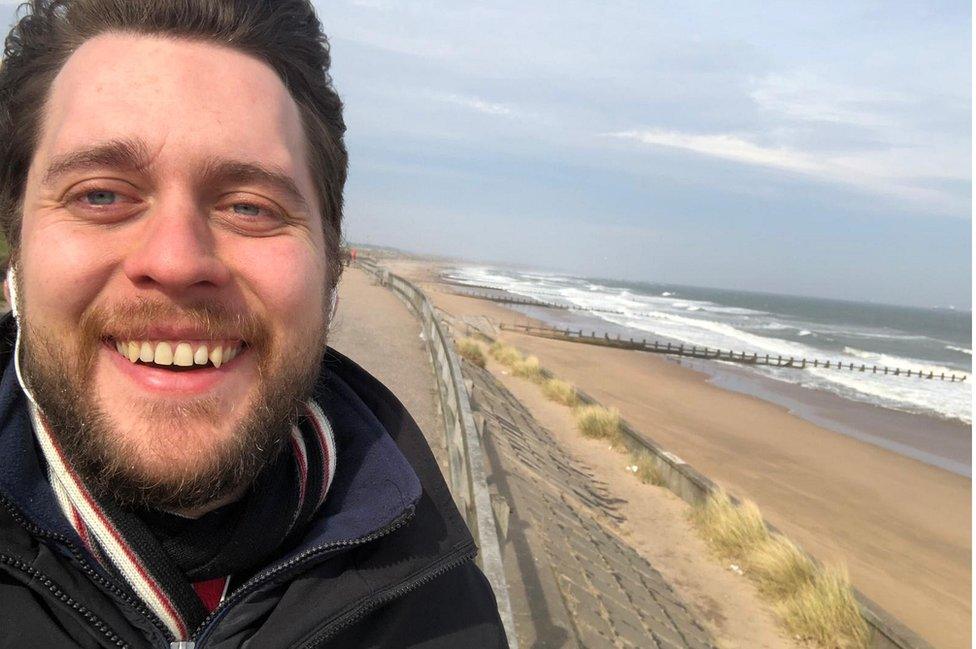
Callum, from Aberdeen, is still suffering severe fatigue twelve weeks after first showing symptoms
He was rationing his energy to do the things he had to - washing dishes, washing clothes. He was struggling to have phone conversations without feeling pain in his abdomen from talking. And mentally not being able to speak to anyone left him in "a bad place" .
He said: "I was unwell in my flat by myself. It constantly felt like I was seeing false summits, thinking I was getting better, I could get over this, but then it got worse again, then it got better and then worse again.
"I made a decision after five weeks that I physically couldn't look after myself anymore."
Free from the virus, he moved into his parents' house a few miles away.
He said: "I was deeply depressed. I moved back into my parents' to effectively get care.
"The first day I got here I was struggling and in pain to get up the stairs."
'Life and death'
Callum has improved but now, 12 weeks later he still feels shortness of breath, triggered by any exertion.
He said: "It's so frustrating. I am at 12 weeks and there has been so much false hope. I currently can't live independently and I can't work and that's a very difficult circumstance.
"When we talk about Covid we talk about life and death and there is no conversation about people being affected months later. I think we should put support measures in place for people."
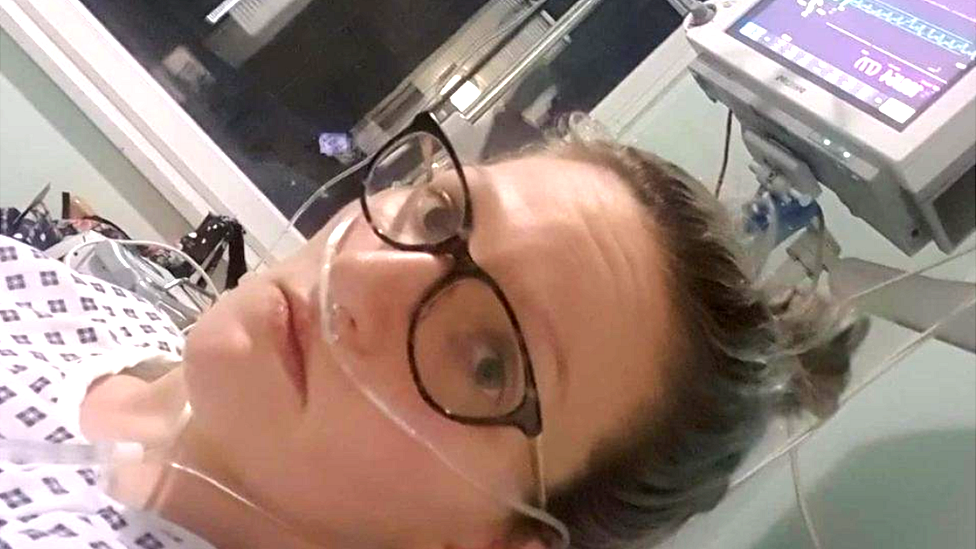
Dr Geraldine McGroarty was in hospital with coronavirus at the same time as the prime minister
Scottish surgeon Geraldine McGroarty has had a similar experience. She caught Covid-19 at the same time as Boris Johnson at the end of March.
She too was looked after in intensive care in London. But like Callum O'Dwyer, she is still struggling daily.
She said: "I'm doing okay. I was hit quite badly with post-viral symptoms which was surprising considering how well I felt when I came out of hospital.
"The last couple of weeks have been a real struggle. Particularly with fatigue. Having very low energy and difficulty forming thoughts and having conversations. It has been very unexpected."
'Very slow recovery'
The newness of the Covid-19 virus means that no one has yet been able to study how long it might take to recover from it, and what the long-term implications could be.
Dr McGroarty said: "Certainly looking at research those who have had a more severe Covid, especially those who have been hospitalised in critical care, tend to be more susceptible to having the post-viral condition, the most common symptom being fatigue.
"And looking at the studies in countries affected before ours, we can expect it to last up to about six months in some cases with a very slow recovery."

YOUR QUESTIONS: Our experts have answers
LOOK-UP TOOL: How many cases in your area?
GLOBAL SPREAD: Tracking the pandemic
EUROPE LOCKDOWN: How is it being lifted?
THE R NUMBER: What it means and why it matters

- Published21 April 2020
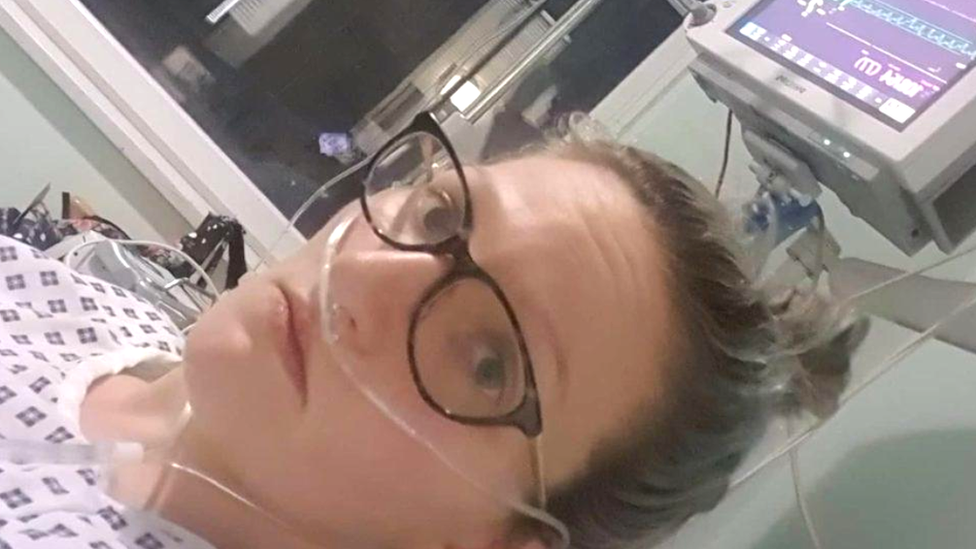
- Published1 May 2020
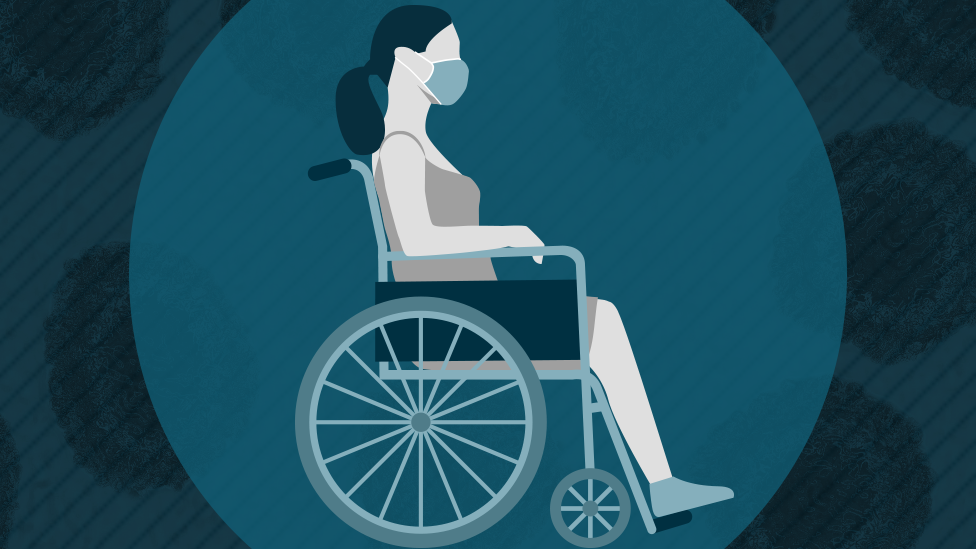
- Published19 May 2020
